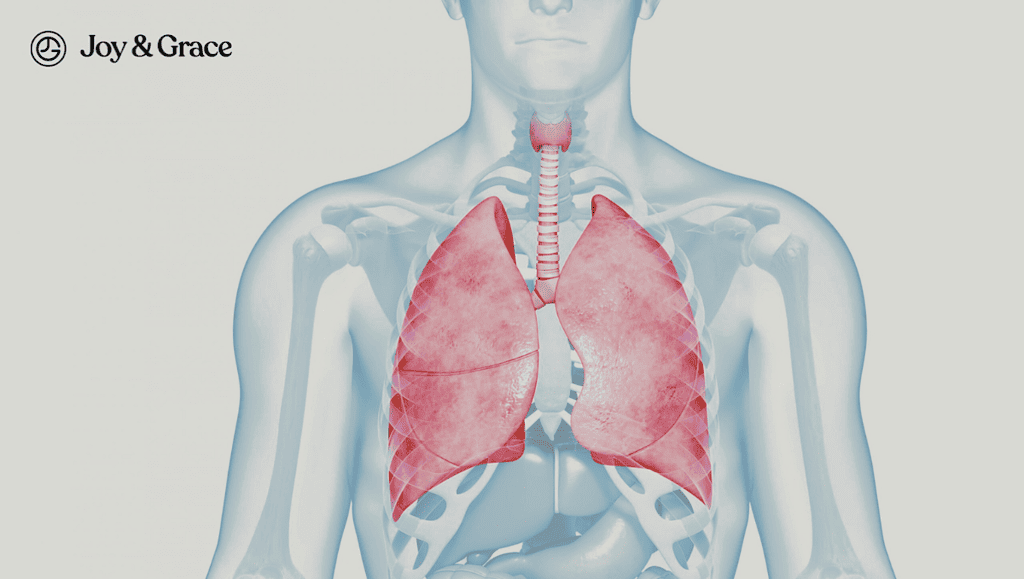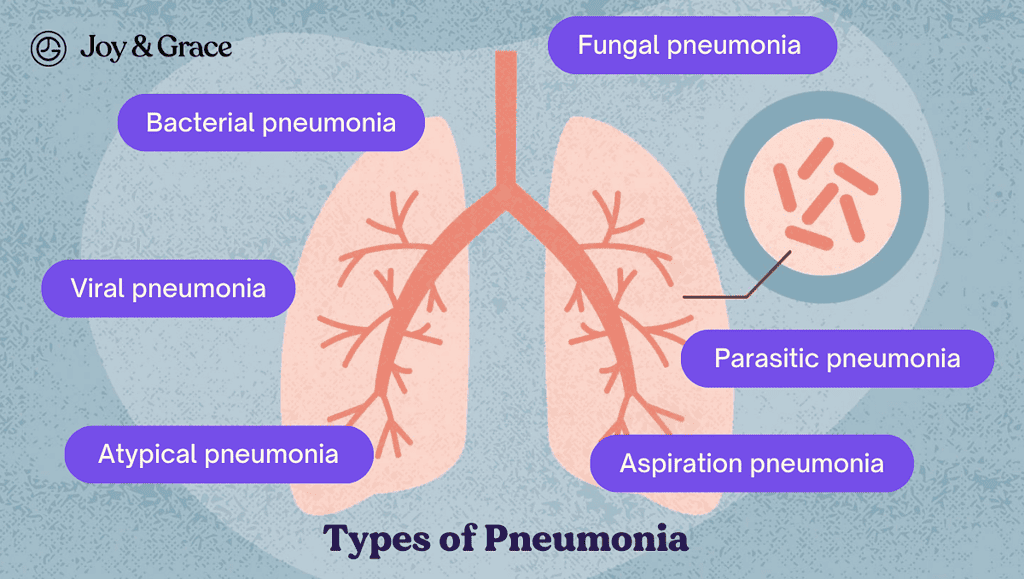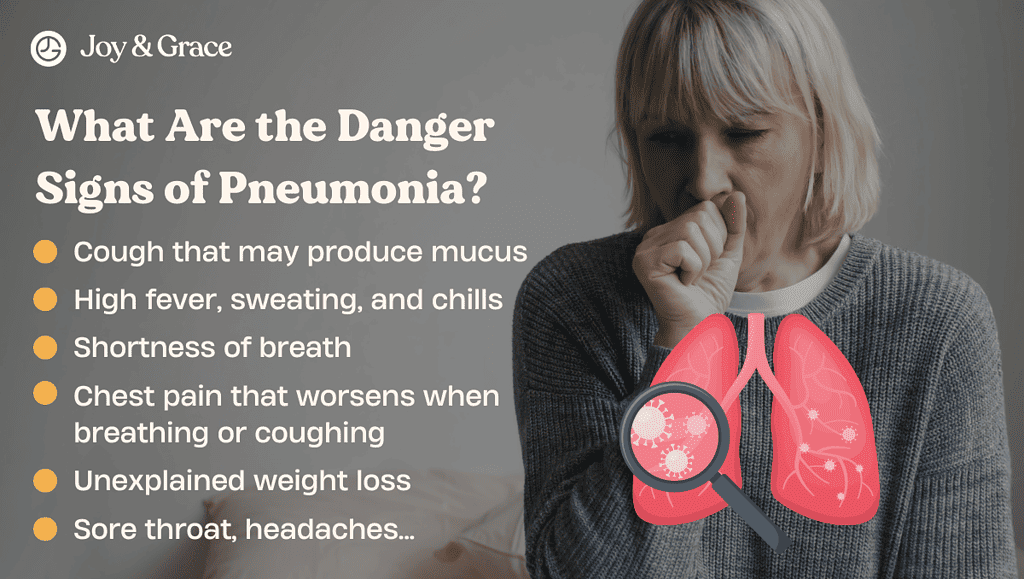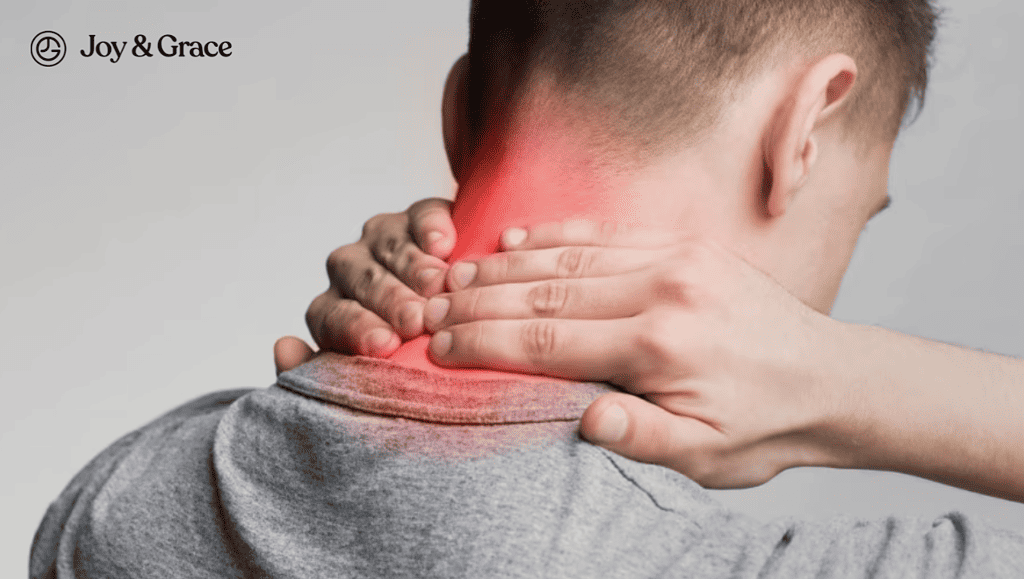You have recently been dealing with pneumonia and experiencing shoulder and back pain. So, you may naturally wonder: is there a connection between the two? This article will tell you all you need to know about the relationship between pneumonia and shoulder blade pain. Let us dive right into the topic!
Can Lung Infections Cause Shoulder and Back Pain?

The answer is yes. Lung infections like pneumonia can indeed cause pain in your shoulders and back. And if you have not heard, pneumonia is one of the most common and serious lung infections in the US.
So, how do lung infections like pneumonia exactly cause shoulder and back pain?
Well, apart from the lungs, lung infections can affect the surrounding tissues too. This can lead to pain in different parts of your body.
The inflammation of pneumonia can spread from the lung tissue to the layers lining your lungs, called pleurae. The pleurae are two thin layers of tissue that surround, protect, and cushion the lungs. Pleural inflammation is also known as pleurisy.
Pleural inflammation may irritate the nerves that run through your chest, shoulders, and back. In turn, this nerve irritation gives rise to pain.
Another way lung infections can cause shoulder and back pain is by causing excessive coughing.
Frequent and forceful coughing strains your chest, back, and shoulder muscles when you have a lung infection. This strain can lead to discomfort, tension, and muscle strain in those areas. The pain can be felt in the shoulder blades because the muscles are interconnected. It's important to treat lung infections and manage the pain to aid in healing and reduce discomfort.
What Kind of Pain is Caused by Pneumonia?
Pneumonia causes pleuritic pain, starting at the chest and sometimes spreading to the shoulder blades and back.
Patients with pneumonia often report sharp and localized thoracic or shoulder blade pain. This sharp pain gets worse with respiratory movements, coughing, or sneezing. Pain can also be dull, aching, burning, or simply feel like a "catch."
Depending on the cause, shoulder blade pain may have different characteristics. This is why finding the right diagnosis from the start is important.
How Long Does Pneumonia Shoulder Blade Pain Last?
To relieve the pain from pneumonia quickly, you need to follow your healthcare provider’s instructions. The time it takes to get rid of the pain varies from person to person.
The NIH says some people feel better and can return to everyday routines in 1 to 2 weeks. For others, it can take a month or longer. Most people continue to feel tired for about a month.
How Do I Know if Shoulder Blade Pain is Lung Related?
Shoulder blade pain can signify many health problems. It may arise from any of the following conditions or diseases:
- Injuries or trauma
- Poor posture or deformity, such as scoliosis
- Lack of strength or overuse
- Rheumatic disorders, such as arthritis
- Diseases affecting the internal organs, such as gastritis, gallbladder disease, or kidney stones. These conditions usually radiate the pain up to the shoulder blades rather than causing sole shoulder blade pain.
- Rarely, from neoplastic conditions, such as breast cancer or lung cancer.
Understanding the cause of your shoulder pain is crucial to getting the right treatment and healing quickly. Here are some signs to look for when considering if a lung problem such as pneumonia is causing your shoulder blade pain:
- The shoulder blade pain is accompanied by difficulty breathing, breathlessness, and a persistent cough.
- Your chest pain spreads to the shoulder blade.
- Your lungs are hyperinflated, meaning they’ve taken on too much air.
- The shoulder blade pain accompanies typical infectious symptoms like fever, cough, phlegm, and fatigue.
When Should I Be Worried About Pain Between My Shoulder Blades?
As we discussed, shoulder blade pain can result from many lifestyle factors, such as stress or poor posture. However, there are some red flags you should be aware of when feeling this type of pain. Do seek immediate medical care if:
- You have recently experienced an injury or trauma.
- You have a history of cancer, drug abuse, HIV, immunosuppression, or prolonged use of corticosteroids.
- You are younger than 20 or older than 50.
- You also have a cough, fever, difficulty breathing, and phlegm. These might be signs of lung disease or infection.
- You have breathlessness, severe and sharp chest pain, upper back pain, arm pain, and sweating. These might be signs of severe heart conditions, such as a heart attack or aortic dissection.
- Does not go away after 2-4 weeks, gets worse, and worsens your life quality.
Let us look at a special case of pneumonia shoulder blade pain. Rarely, pneumonia of the upper lung parts may develop into a syndrome called Pancoast syndrome. This condition is caused by a bacterium called Staphylococcus Aureus. It is characterized by the following symptoms and signs:
- Shoulder and arm pain,
- Numbness, weakness, and atrophy of the hand muscles, and
- Horner's syndrome, a condition characterized by a combination of symptoms like:
- A drooping eyelid,
- A constricted pupil, and
- Decreased sweating on one side of the face.
Nerve damage in the neck or chest is a common cause of this syndrome.
This condition is treated with antibiotics.
Is Pneumonia Pain Worse at Night?
Yes, the shoulder pain, cough, and other symptoms of pneumonia may be worse at night. This fact makes it difficult for people with pneumonia to sleep. Lack of sleep causes generalized fatigue and disables daily work and activities. In turn, lack of sleep during the night or excessive sleep due to fatigue may increase the risk of infections. Thus, pneumonia may become even worse.
How Do I Sleep With Pneumonia?

If you have pneumonia and shoulder blade pain, you will want to pay attention to the way you sleep. To reduce the chance of coughing and mucus backing up, you should elevate your head. You can use a comfy pillow or headrest to keep your head above your chest level.
Additionally, to not add to the shoulder blade pain, try not to sleep on your side. Instead, try to sleep on your back to balance the pressure on both sides of your body.
Why Do I Have Chest and Shoulder Blade Pain?

We know by now that nerve irritation causes pain. Because of how the nerves in the body are connected, you may feel pain in two neighboring areas at once. Such is the case with chest and shoulder blade pain. These two types of pain can commonly result from several causes. Let us discuss the main ones:
- Pneumonia
As we mentioned, pneumonia is a common and potentially serious lung infection. The lung inflammation and congestion in pneumonia can put pressure on your lungs and chest muscles and affect your pleurae. This pressure leads to chest pain, which spreads to other parts, such as the shoulder blade.| - Bronchitis
Bronchitis is another common respiratory infection that causes inflammation in the bronchial tubes. It can result in chest pain and discomfort radiating to your shoulders. - Hyperinflated lungs
Hyperinflation happens when you breathe in large quantities of air. The air you breathe gets trapped due to an underlying lung condition like COPD or asthma. This air trapping leads to overfilling of the lungs with air. Hyperinflated lungs can push against the surrounding muscles and tissues, leading to dull shoulder blade pain. - Diaphragmatic irritation
The diaphragm is the key muscle that supports normal breathing. It is located underneath the lungs. Irritation of the nerves supplying the diaphragm may cause chest and shoulder pain. - Heart conditions such as ischemic heart pain, heart attacks, or aortic dissections
Chest pain from the heart can spread to the shoulders, left arm, or jaw.
So far, we have covered pneumonia-related shoulder blade pain, one of the many symptoms of pneumonia. Now, let us discover more about the disease itself.
What is the Main Cause of Pneumonia?

As we talked about earlier, pneumonia is a serious lung infection. It can be caused by various micro-organisms, which gives rise to its types:
- Bacterial pneumonia
This is the most common cause of pneumonia in adults. It occurs when nose, mouth, or throat bacteria enter the lungs. Pneumonia by bacterial infections is most often caused by Streptococcus pneumoniae - Viral pneumonia
This type is more common in children than adults. Various viruses, including the flu virus, can cause it. - Atypical pneumonia
This type of pneumonia is known as "walking pneumonia" and is caused by Mycoplasma pneumoniae. - Fungal pneumonia
Fungal pneumonia occurs when fungi enter the body from the environment through inhalation. - Parasitic pneumonia
Parasitic pneumonia is an infection of the lungs by parasites. It is a rare cause of pneumonia. It happens almost exclusively in people with a weakened or absent immune system. This is a respiratory infection that may or may not be serious. - Aspiration pneumonia
This type happens when food, drink, or saliva is accidentally inhaled into the lungs. As a result, infection may occur.
Pneumonia is not usually passed from one person to another, so it's safe to be around others, including family members. However, be wary if you have a weakened immune system.
What Are the Danger Signs of Pneumonia?

Pneumonia occurs when the air sacs in the lungs become inflamed or filled with fluid. This change in the lungs may result in dangerous signs and symptoms of pneumonia, such as:
- Cough that may produce mucus
- High fever, sweating, and chills
- Shortness of breath or other breathing difficulties, such as shallow breathing and pain with deep breaths
- Chest pain that worsens when breathing or coughing
- Unexplained weight loss
- Sore throat
- Headaches
- Rapid heartbeat
- Fatigue or malaise
- Nausea, vomiting, or diarrhea
- Confusion or changes in mental awareness
When is Pneumonia Serious?
Pneumonia is considered more dangerous in the following situations:
- In adults over the age of 65. People 65 or older have a higher risk of developing severe pneumonia due to age-related weakening of their immune system.
- In adults who smoke. Smoking is an important risk factor for pneumonia.
- In children younger than the age of 2.
- In people with underlying health conditions. This group includes people with weakened immune systems from underlying diseases or conditions. The more vulnerable patients are those:
- Suffering from Chronic Obstructive Pulmonary Disease (COPD),
- Suffering from heart disease,
- Undergoing cancer treatment,
- Who have undergone organ transplantation,
- Suffering from HIV-AIDS.
- When symptoms worsen. If pneumonia symptoms worsen, the infection may spread, causing further lung damage.
- When complications arise. Pneumonia can be severe and may need hospitalization and intensive treatment.
- When recovery is delayed. People who take longer to recover or have recurrent episodes of pneumonia may need further evaluation.
- If the lung infection is resistant to many antibiotics.
When this happens, it can become challenging to treat the disease effectively. This highlights the importance of responsible antibiotic use. By using antibiotics responsibly, we prevent the development of antibiotic resistance. This is how we can preserve the effectiveness of antibiotics for future infections.
What is the Most Serious Complication of Pneumonia?
Most people with pneumonia respond well to treatment. But in some cases, pneumonia can be dangerous and life-threatening.
The most serious complications of pneumonia include the following:
- Sepsis. Sepsis is when the body's response to infection becomes so overwhelming that it can harm organs and tissues. This response causes widespread inflammation and organ damage. Sepsis is a medical emergency and can be fatal if left untreated. Symptoms of sepsis include high fever, chills, rapid heartbeat, confusion, and difficulty breathing.
- Lung abscess. This is a collection of pus in the lung tissue. Lung abscess can occur when the infection in the lung becomes so severe that it causes tissue death. Symptoms of lung abscess include chest pain, coughing up blood, shortness of breath, and fever.
- Pleural effusion. Effusion occurs when there's fluid buildup in the space between the lungs and the chest wall. Pleural effusion can cause chest pain, shortness of breath, and a dry cough.
- Respiratory failure. This represents a serious condition that makes it difficult to breathe on your own. People with respiratory failure require a ventilator or breathing machine.
- Neurologic problems.
Pneumonia can lead to neurological problems like encephalitis, optic neuritis, and stroke. These complications happen especially with fungal infections but are luckily rare. Thus, recognizing dangerous neurological symptoms and seeking medical advice is important.
What is the Best Treatment for Pneumonia?

Your doctor may diagnose pneumonia after taking your medical history, performing physical examinations, and ordering diagnostic tests such as blood tests or a chest X-ray.
Mild pneumonia can be treated at home. More serious pneumonia needs you to stay for a while in the hospital.
Treatment of pneumonia involves getting rid of the underlying cause. In the case of bacterial pneumonia, antibiotics come in handy. Always consider any allergies or antibiotic resistance before taking an antibiotic.
Painkillers like paracetamol or ibuprofen may help relieve pain and reduce fever.
You might be tempted to use cough medications too, but there's little evidence they are effective. A warm honey and lemon drink can help relieve discomfort from persistent coughing.
Drink plenty of fluids to avoid dehydration, and get plenty of rest to help your body recover. If you smoke, consider stopping it, as it does nothing but worsen your symptoms.
If you have severe symptoms, your doctor will recommend you stay at the hospital. You'll get antibiotics and fluids intravenously and may need oxygen or breathing assistance.
Last but not least, the best treatment option is prevention. Vaccines can help prevent certain types of pneumonia. Hence, it is important to stay up to date with recommended vaccinations.
The CDC recommends two preventative pneumonia vaccines for adults:
- Pneumovax (PPSV23) and
- Prevnar (PCV13).
The two vaccine types build immunity against different types of bacteria that cause pneumonia. Pneumovax protects against 23 common types, whereas Prevnar protects against 13 types.
Adults 65 and older should receive Prevnar first, followed by Pneumovax six months to one year later. The combination of these two vaccines works much better for pneumonia prevention than using either of them alone.
What Not to Do With Pneumonia?
What should you do and NOT do if you have pneumonia? How can you prevent your symptoms from getting worse? Here are our recommendations:
- Do not ignore your symptoms.
- Seek medical care for your symptoms.
- Follow your doctor's advice and treatment plan.
- Do not neglect rest. Resting allows your body to recover and heal more efficiently. It is important to prioritize rest and avoid strenuous activities until you fully recover from pneumonia.
- Avoid people who are sick. If you are sick, stay away from others as much as possible to avoid getting them sick.
- Get vaccinated. Vaccines can help prevent bacterial and viral infections that can cause pneumonia.
- Wash your hands regularly.
- Clean and disinfect surfaces that are touched a lot.
- Cough or sneeze into a tissue or your elbow or sleeve.
- Limit contact with cigarette smoke and quit smoking. Exposure to cigarette smoke can irritate the respiratory system and increase the risk of pneumonia. If you smoke, quitting is highly beneficial for your lung health and overall well-being.
- Manage and prevent conditions like diabetes, asthma, or heart disease. Chronic medical conditions can weaken the immune system. This makes people more vulnerable to infections like pneumonia.
This list of advice will help you recover from pneumonia shoulder blade pain, and other common symptoms much quicker and easier.
Takeaway
Shoulder blade pain can signify many health problems, including lung conditions. Understanding the red flags is important when making a diagnosis.
Pneumonia is one of the causes of pain in your shoulders and back. Pneumonia is one of the most common and serious lung infections in the US.
The inflammation of pneumonia can spread from the lung tissue to the layers lining your lungs, called pleurae. Pleural inflammation may irritate the nerves that run through your chest, shoulders, and spine. This nerve irritation gives rise to pain.
Some people with pneumonia feel better and can return to normal routines in 1 to 2 weeks. Others may bear the pain for months.
The shoulder pain, cough, and other symptoms of pneumonia may be worse at night.
Pneumonia is considered more dangerous in the following situations:
- In adults older than 65 and children younger than 2
- In adults who smoke
- In people with underlying health conditions
- When symptoms worsen
- When complications arise
- When recovery is delayed
The most serious complications of pneumonia include the following:
- Sepsis
- Lung abscess
- Pleural effusion
- Respiratory failure
Mild pneumonia can be treated at home. More severe pneumonia needs you to stay for a while in the hospital. In the case of bacterial pneumonia, antibiotics come in handy.
Pneumonia can be prevented by using vaccines. The CDC recommends two preventative pneumonia vaccines for adults:
- Pneumovax (PPSV23) and
- Prevnar (PCV13).















